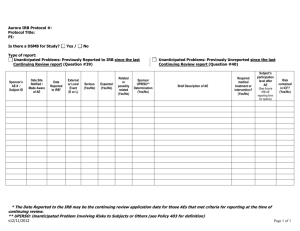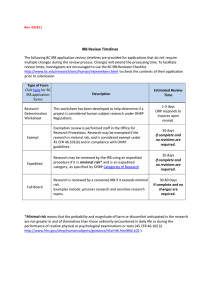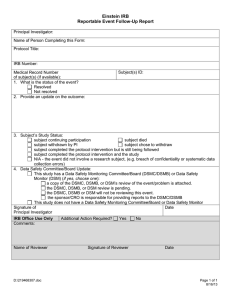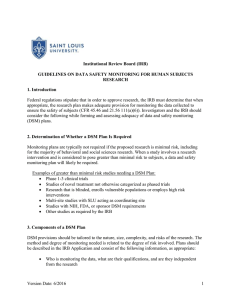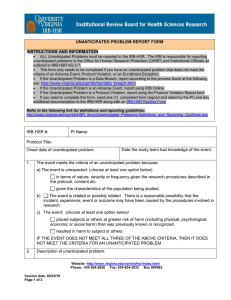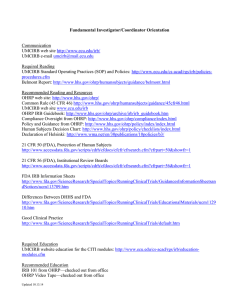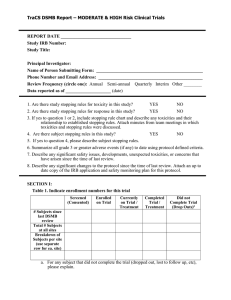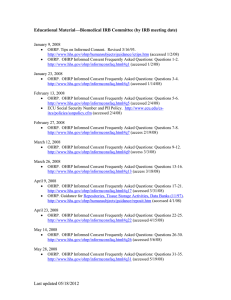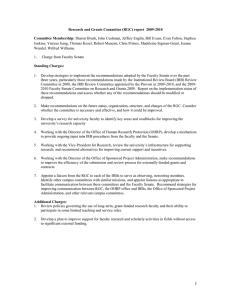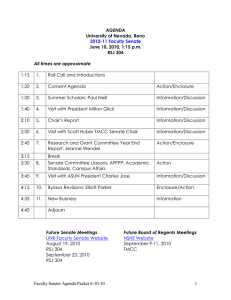Data Safety Monitoring Plan
advertisement
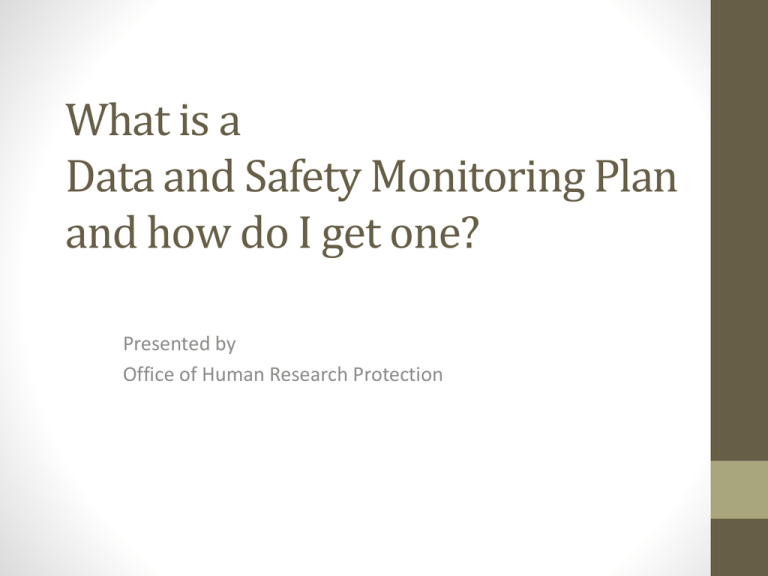
What is a Data and Safety Monitoring Plan and how do I get one? Presented by Office of Human Research Protection For a study to be approved, one of the criteria that must be met is: • When appropriate, the research plan makes adequate provision for monitoring the data collected to ensure the safety of subjects. Our IRB has interpreted “when appropriate” to mean when a study is more than minimal risk and involves an intervention. • When appropriate (when study is more than minimal risk and involves an intervention), the research plan makes adequate provision for monitoring the data collected to ensure the safety of subjects. Per our guidance, if a DSMP isn't provided in the protocol, investigators must state that a DSMP will not be used for the research and explain why one is not necessary. • For a submission for initial review, this information must be provided in the Risks section of the protocol application. • The Protocol Renewal Request includes a place for data safety monitoring reports in the research status section. What is minimal risk? • Minimal risk means that the probability and magnitude of harm or discomfort anticipated in the research are not greater in and of themselves than those ordinarily encountered in daily life or during the performance of routine physical or psychological examinations or tests (45 CFR 46.102 and 21 CFR 56.102).* * note: studies involving prisoners have different definition of minimal risk Who decides if the study is minimal risk? • The IRB makes the final determination. Studies that are determined to be more than minimal risk are “full board” studies and require review by the convened board. • Studies in which a subject will be experimentally assigned to an investigational drug or device treatment intervention are considered to be more than minimal risk. Other studies may also be determined to be more than minimal risk. What is data and safety monitoring? • Data and safety monitoring is the process for reviewing data from an ongoing study to monitor the progress of the research and the safety of participants. • The frequency of review and the intensity of the monitoring required depend on factors such as the study risk, complexity and size. What should be included in the plan? • Describe plan to monitor data for safety. Include: • Who will monitor the data for safety concerns? • What data will be reviewed? • How often will the monitoring occur? • How often will cumulative data be reviewed? What types of data or events will be monitored? Considerations: • Prompt detection of unanticipated problems involving risks to subjects or other • Data accuracy • Protocol compliance • Recruitment, accrual, retention • Criteria for suspension or termination of study Who will be monitoring the data/events? Considerations: • Is there a Data and Safety Monitoring Board (DSMB)/ Data Monitoring Committee (DMC) that will be monitoring the data/events? (for example, if the study is part of a multi-center clinical trial)? • Who will be monitoring and collecting the adverse events? How will events be reported and Assessed? Considerations: • Time frame for reporting unanticipated problems involving risks to the subjects or others to the sponsor and IRB. • If study is multi-center and the local PI is the lead investigator, describe how communication will be assured among the sites • If the study has DSMB/DMC, how findings will be reported to the IRB How often will the assessments be made? Considerations: • Time based • Enrollment based • Procedure based • Cumulative data Questions? Contact OHRP: 218 Ross Hall 775-327-2368 www.unr.edu/ohrp
